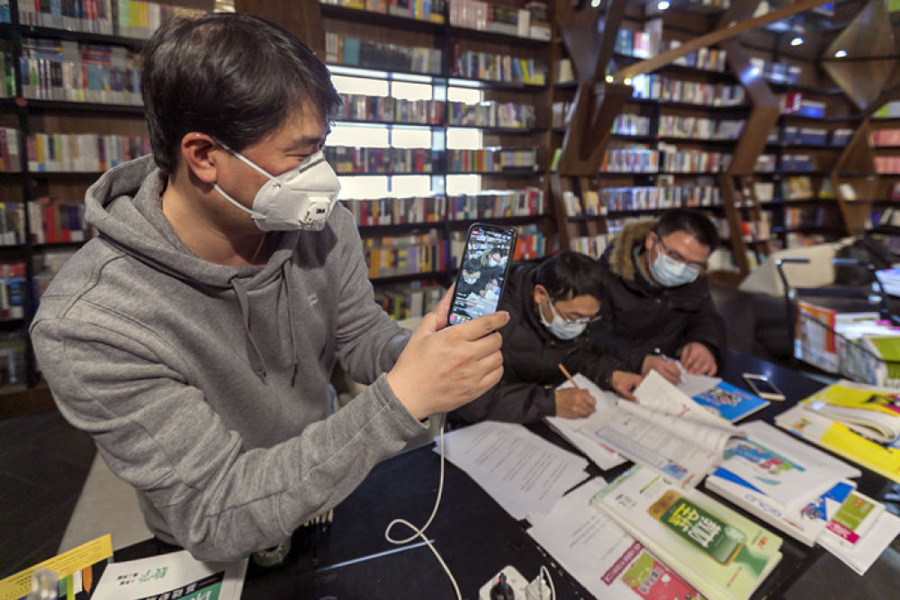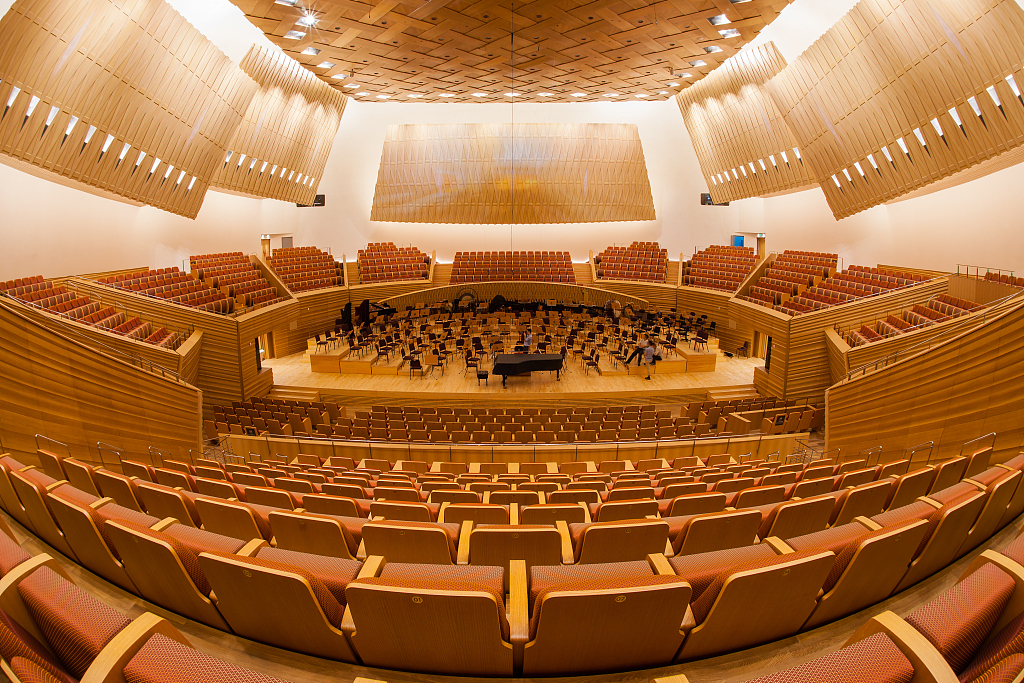China's culture industry has been transformed by embracing live broadcasting as the coronavirus outbreak forced many cultural events to move online.
The world's first 'cloud fashion week'
This year's Shanghai Fashion Week is going to be very special. From March 24 to 30, more than 100 brands will present their latest collections on China's biggest e-commerce platform Tmall.
Billed as the world's first "cloud fashion week," it allows fashion lovers to watch the shows at home via live broadcasting while ordering the garments featured in the new spring/summer collections.
Since the outbreak of COVID-19, the fashion industry has been heavily hit with fashion shows canceled and brands closing their stores around the world.
"If the epidemic restricts so many talented designers and brands to display their energy, it would be a pity," said Lyu Xiaolei, deputy secretary general of the Shanghai Fashion Week organizing committee.

The backstage of the Shanghai Fashion Week, October 15, 2019. /VCG
The backstage of the Shanghai Fashion Week, October 15, 2019. /VCG
Bracing livestreaming to save the industry
Chinese customers are not unfamiliar with buying goods online via live broadcasting.
In recent years, top livestreaming hosts, such as Li Jiaqi and Wei Ya, have enjoyed huge popularity and repeatedly made headlines by breaking sales record. Their broadcasts sell a wide range of goods from cosmetics and clothes to film and concert tickets.
Inspired by the business model, some brick-and-mortar bookstores, which had few visitors during the epidemic, also went online to revive their business.
On March 9, Xu Zhiyuan, co-founder of Owspace Bookstore, became a guest in Weiya's livestreaming studio and spoke with operators of other independent bookstores. The single broadcast sold books and creative products valued at more than 500,000 yuan (70,576 U.S. dollars), giving a boost to the struggling bookstores.

Xie Ning, manager of Zhongshuge Bookstore Minhang branch, sells books during a live-broadcasting. /Xinhua
Xie Ning, manager of Zhongshuge Bookstore Minhang branch, sells books during a live-broadcasting. /Xinhua
Zhongshuge Bookstore turned its stores into livestreaming studios. After closing their doors amid the coronavirus, Zhongshuge Bookstore hosted live broadcasting sessions on its online store. During a two-hour transmission at a bookstore in Shanghai, store manager Xie Ning gave viewers a tour around the store, shared his experience during the epidemic and recommended several popular books.
"We use livestreaming to help readers know our store, and during the process, we also find new readers," The Paper news outlet cited Xie as saying.
More than selling goods
But live broadcasting is more than selling goods.
When enjoying a concert at a theater became impossible during the outbreak, four musicians at the Shanghai Symphony Orchestra, wearing masks, held a concert in an empty hall during a free live broadcast on March 14.
Themed "Love's Greeting," the concert presented several pieces of classic music, attracting nearly 840,000 viewers.

An empty concert hall. /VCG
An empty concert hall. /VCG
The concert was part of the free online service "Cloud Theater" introduced by Shanghai Symphony Orchestra on January 27. From courses to play music instruments to live concerts, the content was rich and varied.
"All the doctors and nurses were working so hard to help people, so we thought 'What can we do as musicians?'" Hao Jie, the orchestra's principal trombonist, told The New York Times in a telephone interview.
"With everyone staying home for so long, we thought of doing something for young people, for students interested in learning how to play musical instruments," Hao added.
According to a report released by QuestMobile, since the outbreak, Chinese internet users have spent 21.5 percent more time online every day in comparison with the beginning of 2020.
Live broadcasting is no longer a production tool for online entertainment but has become a basic business tool integrated with more business scenarios, the report said.
The epidemic outbreak has promoted the transformation of the culture industry, said Zhang Xiaoming, deputy director of China National Center for Culture Studies under the Chinese Academy of Social Sciences.
The enterprises in the industry are forced to use new technology applications, business formats, and business models to survive, which will allow cultural productivity outside the traditional model, Zhang said.
(Top image designer: Yin Yating)